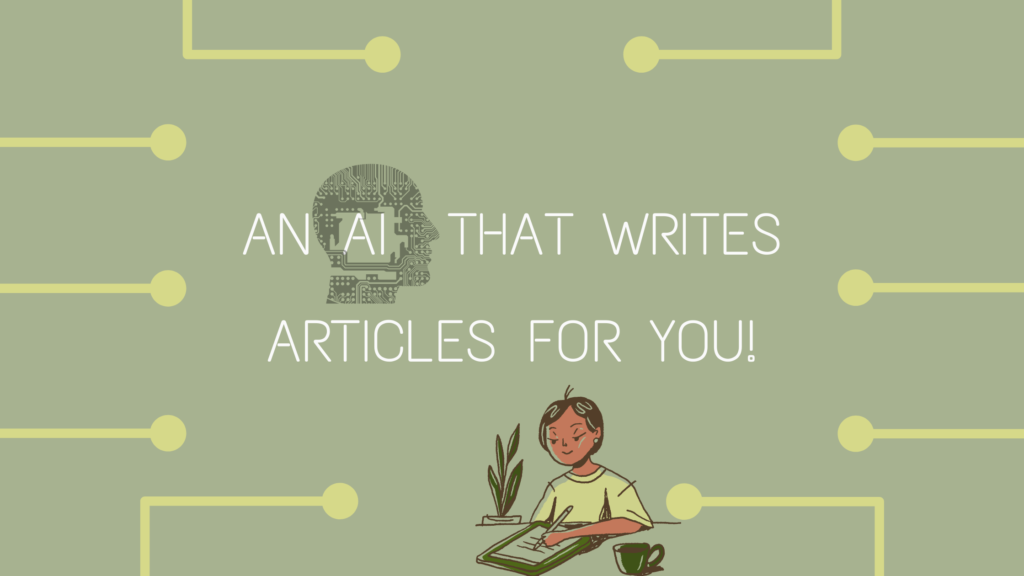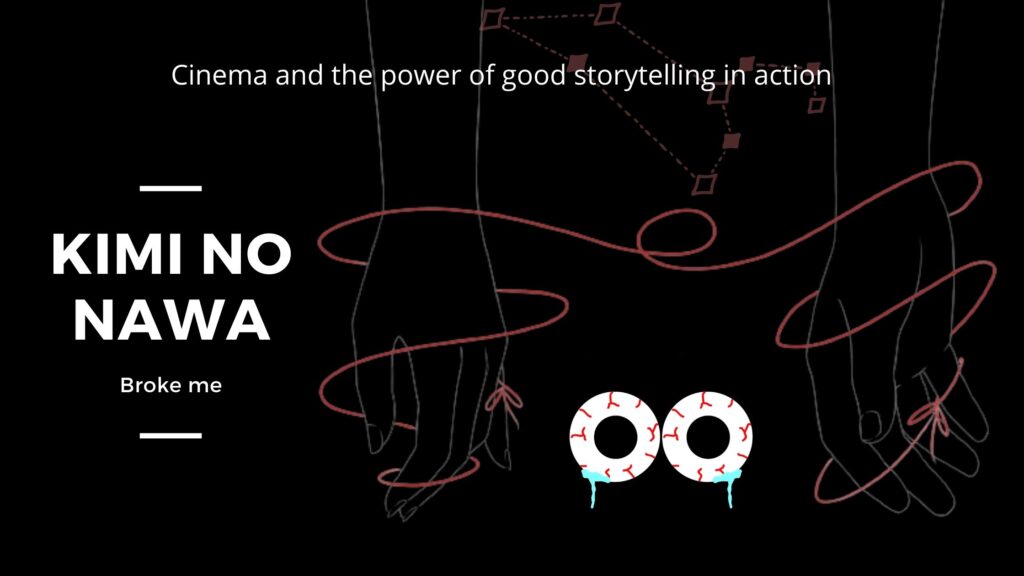The specifics:
ML+AI Technology will write your blogs or stories. Or will they?
I know it sounds unbelievable to many. A software that creates an article on any topic? An AI writes articles? Stop misleading me Binati, you snobby gobshite. I promise, I am not. I mean, I am a gobshite but I am not misleading you. The video clearly shows one website working. You can go to the site to get proof yourself. Writing with the help of machine learning (ML) and artificial intelligence (AI) is here, much quicker than we anticipated (not really, we just have a MARVEL-ous perception of the diverse forms of ML+AI).
Over the years, while ghostwriting technical content, I have come across some trippy tech. Two things I heard that blew my writerly mind were self-writing AIs and conceptual plagiarism detectors. Yes, I am going to expand on both of these so stop rolling your eyes at me.
Self-Writing AI
I heard about self-writing AIs in 2016 when machines were being forced to read horrendous material and then, they had to write (by prediction) the next awful thing this author/scriptwriter would create. Examples would be: NaNoWriMo (Barber, 2019), 1 THE ROAD BY AN ARTIFICIAL NEURAL NETWORK (Goodwin, 2017), Artificial Tim Denning (Roberts, n.d.), and many more. The results were hilarious. However, these showcased something. When enough data is fed into these systems, they could predict and replicate the writing style of a subject with palpable accuracy.
Look at your phone right now and text someone with predictive text (Henry, 2014) on. What you are experiencing is a device that learned your preferred words. This device you own has learned to autocorrect words to whatever it is you prefer to use. For instance, now when I try to type Shanti for ‘Om Shanti’, it autocorrects to Shanthi, my friend’s name because I say Shanthiiiiiiiiiiiiiiiiiiiiii way more than Shanti. The technology existed. What was missing was a need.
That’s where the writers from the KISS generation stepped in. KISS here refers to Keep-It-Simple-Silly and not the rock band. These are stalwarts of the content and eBook writing industry who primarily aspire to cash in on the trend to earn by writing and not write to educate/inspire/inform/entertain/express. They will google a topic smartly, not really confer with the development teams of the product/service they’re writing for, then get to writing; well rewriting.
Original ideas don’t always exist. I understand that. However, as responsible writers, we have to build on existing ideas by writing and not rewriting. The KISSes just ignored all of that for the greenback and started creating shoddy content that people paid for. Given how bad the content quality was, courtesy of the rewrites, every time a Search Engine updated, the Search Engine Optimisation of the blogs tanked.
Paying customers were back to square one in spite of paying the professionals. This frustration often presents itself via rants on social media and service review platforms. Observant coders noticed a problem and they devised a solution – an AI that rewrites original content for you.
Go check Shortly AI. It is a GPT-3 (Generative Pre-trained Transformer) API(Application Programming Interface). You get five free trials by signing up. Log in. Select what you want to write: a blog or a story. Then, input a brief. This is basic details about the blog/story you want to write. Set how much content you want created. Do you want it paragraph by paragraph or do you prefer the entire article written in one fall swoop? Click on Write for Me. Then wait.

You will see the plagiarism free, grammatically accurate content it creates by going through a crap tonne of pre-existing content on its own. It does this almost instantaneously. It is surreal. You might be baffled by this, probably a bit scared. You shouldn’t be. If you create quality content, no machine will be able to replace you because machines can recreate (right now). One of the things that makes us human, sentient is our ability to create. If you create, you will always be in vogue.
There’s WordLift as well; a tool which will optimise your content using an AI, something that will trawl through the cyber universe to determine the correct parameters. The need to hire SEO optimisers and overpriced agencies would be rendered moot.
Conceptual Plagiarism Detection
Another problem with bad writing is plagiarism. Some people change the voice of an article from passive to active, and that becomes the article. If conceptual plagiarism detectors existed, something like shameless rewrites of somebody else’s work would stop. A customer won’t be wasting their money on a hack job.
When I heard about plagiarism detection that went beyond the words, to say I was ecstatic would be an understatement. This is something I will purchase first hand (when it launches) because frankly, at this point, some people need to be exposed for the content thieves they are. There really is no pressing need to steal someone’s work and substitute that with better words.
Every content sharing platform is equipped with this ability to share links, cite sources and give credit to the original content. Instead of rewriting (smart plagiarism), people could cite (that will increase your SEO as well). Instead of rewriting, credit the original author for the source material. Then, agree and add to the content of your blog or your prospect’s blog.
Rudimentary conceptual plagiarism is already being detected as discovered by this study (Yu H., Huang C., Kong L., Sun X., Qi H., Han Z., 2020) that found an uptake in plagiarism detection by 56%. What this means is Google’s machine learning equipped algorithm is detecting some plagiarism which our standard plagiarism detectors are missing. This probably also explains why certain blogs suddenly develop an SEO problem whenever the search engine updates.
Word of free advice – when you commit to the grind and the hustle, what you miss out on is progress. You’ll get the views, the fame and maybe the money. But what about responsibility? No matter what Turdi-McTurdson says, it is never okay to willingly steal someone’s work and just do a rewrite because it is easy or because everyone does it. With plagiarism, it is binary. You either copy or you don’t. Don’t copy.
Should you be scared then?
I completely agree with TIC here when they say, “Right from conceptualisation to creation to fine-tuning to results, machine learning is involved at all stages of the modern content creation process. What’s important for the content writer is to remain in the driver’s seat and use machine learning tools to make content creation simpler, faster and better.” (TIC, n.d.)
These websites will become the latest tools in our arsenal. Let the AI write the articles. You can subscribe to these websites to up your content game by creating a legitimately kickass blog. Start by preparing a blog brief instead of a solid outline. Let one software fetch you the data. Let another optimise the entire thing for Search Engines. Then, you step in to humanise the content. Ultimately, to make a human buy things, you need to do human-esque things. You are absolutely not done content writing yet. You simply get to upscale your content in a simpler, more efficient way. What is scary about that?
Change is constant. With technology, change is imminent. You can whine or you can adapt. Choose to adapt, ya?
I would love to know your thoughts about this in the comments. Do you think a writing software ushers the metaphorical death of human content writers? Or do you agree with me?
While you’re at it, subscribe to my monthly (free) newsletter. I share resources and updates, once a month via a thematic text block.
[email-subscribers-form id=”1″]
Citations
- Barber, G. (2019). Text-Savvy AI Is Here to Write Fiction. Retrieved from WIRED: https://www.wired.com/story/nanogenmo-ai-novels-gpt2/
- Goodwin, R. (2017). 1 THE ROAD BY AN ARTIFICIAL NEURAL NETWORK. Retrieved from Jbe Books: https://www.jbe-books.com/products/1-the-road-by-an-artificial-neural
- Henry, A. (2014). How Predictive Keyboards Work (and How You Can Train Yours Better). Retrieved from life hacker: https://lifehacker.com/how-predictive-keyboards-work-and-how-you-can-train-yo-1643795640
- Roberts, E. (n.d.). I Forced An AI To Read 80 Tim Denning Articles And It’s Now A Bad Inspirational Quote Machine. Retrieved from towards data science: https://towardsdatascience.com/i-forced-an-ai-to-read-80-tim-denning-articles-and-its-now-a-bad-inspirational-quote-machine-ea9805d73ddc
- TIC. (n.d.). WILL MACHINE LEARNING KILL THE CONTENT WRITER? Retrieved from TIC Works: https://www.ticworks.com/blog/content-writer
- Yu H., Huang C., Kong L., Sun X., Qi H., Han Z. (2020). Research on MLChecker Plagiarism Detection System. International Conference of Pioneering Computer Scientists, Engineers and Educators.
The Writing Catalogue
Ideas, Words, Bestsellers





What link do you want me to give you?
Shortly is accessible here: https://shortlyai.com/